National Playday 2019

The 7th August is National Playday 2019! This special day highlights the importance of play in children’s lives.
On this day, children are particularly encouraged to participate in local community events, which are created specifically for National Playday. Alternatively, children can have fun with their own activities at home, or visit a local park.
The 2019 Playday theme is ‘play builds children.’ Children learn and grow through play, so it is important for them to have fun and develop in this way.
At StudyBox we offer a Kids Coding Lab course, where children can program and play with robots. We also run maths and English tuition sessions, so children can keep their minds active as well, this summer. We are open throughout the summer from the 22ndJuly – 31stAugust, from 10am until 2pm. Why not book a free trial this week at our Croydon centre, Kidspace, and enjoy one hour of free play to celebrate Playday!
To commemorate Playday, there are loads of exciting activities this week for children to participate in:
Playday events across London:
-
Coram Fields Playday, 7thAugust 2019, 13.00-16.00pm
93 Guilford St, London WC1N 1DN
Fun, free activities for all, including face painting, bouncy castle, inflatable slide, arts & crafts, slime making, music and much more!
-
Islington Playday, 7thAugust 2019 12.00-16.00
Paradise Park, Mackenzie Road N7 8SE
Free event to celebrate Children’s Right to Play. Get creative with the cardboard city, enjoy hanging about in the nets among the trees, have a go at using tools, build a den, make slime or giant bubbles and much more.
-
Art4Space Workshops, 7thAugust 2019. 10.00-12.00, 14.00-16.00
Studio 1, 31 Jeffreys Road, SW4 6QU
Get creative with jewellery, jewels and fabric at this free workshop promoting wellbeing and connection. For 5-18 year olds (under 8s must come with an adult).
If you enjoy this workshop on Playday, there are other free workshops:
Wednesday 14thAugust: Earthly Matters & Clay Play.
Wednesday 24thAugust: Mindful Mosaic & Fab Printing.
Drop in, no booking required.
-
Redbridge National Playday 7thAugust 2019. 10.00-13.00
Hainault Youth Centre, 116 Huntsman Road, Ilford, IG6 3SY
Make your own smoothies, multi-sports for all ages, children’s yoga, face painting. *Free event.
-
Barking & Dagenham National Playday 7thAugust 2019. 11.00-15.30
Valence Park, Becontree, Dagenham, RM8 3EU
Free event for all families. Face painting, inflatables, messy play, crazy golf, and much more.
For more information on Playday events happening in London: http://www.playday.org.uk/region/london/
Activities in the Sutton Borough:
-
Summer Camp Modern Musical Week, 5th-9th 8.30-18.00
Sellincourt Primary School, Tooting, SW17 9SA
Singing, dancing and acting. Adaptations of some of the greatest musicals of our time.
£30 a day.
Book here: https://hoop.co.uk/blue-performing-arts/PsJI6Q-summer-camp-modern-musical-week/
-
Summer Tennis Camp, 5th-9th 9.00-9.45
Wimbledon Park Tennis Courts, SW19 7HR
Fun tennis camp for children.
£12 a day.
Book here: https://hoop.co.uk/teddy-tennis/DZ1VMV-summer-tennis-camp/
-
Mad Science Super Summer, 5th-9th 9.00-16.30
Joseph Hood Primary School, London, SW20 9NS
Science camps sparking imaginative learning through physical, brain-stimulating activities.
£44 a day.
Book here: https://hoop.co.uk/madscienceeast/VxIpYl-mad-science-super-summer/
-
Stagecoach Summer Workshop, 5th-9thAugust. 9.00-12.30
The Langdon Down Centre, Teddington, TW11 9PS
Fun and creative drama, singing and dance workshops for everyone – no experience necessary. Children will create a performance for friends and family.
£135 for a 5-day workshop.
Book here: https://hoop.co.uk/stagecoach-twickenham/VI7rKf-stagecoach-summer-workshops-the-big-top/
-
FUN Soccer School Holiday Camps, 5th-9th 9.00-12.00
Wandle Recreation Centre, London, SW18 4DN
Learn while having fun. Football training session, as well as fun filled day of football activities.
£15 – £20 for 1 day. £55 for a 5-day workshop.
Book here: https://hoop.co.uk/funsoccerschool/NUEHfD-fun-soccer-school-holiday-camps-summer-holiday-camp/
Jewellery Design & Wearable Workshop, 7thAugust. 10.00-11.30
Kite Studios, London, W12 9RY
Unleash your inner fashion designer with headpieces, belts and bags inspired by nature.
£15 for the day.
Book here: https://hoop.co.uk/kite-studios/XgYcrq-jewellery-design-wearable-work/
Celebrate Playday by booking a free trial with StudyBox today! Book here.
Alternatively, call 0208 669 4343 to book.
SATs and GCSE Curriculum Change

Did you know there was a SATs and GCSE curriculum change in 2016 and 2017?
New grading systems are put in place so a clear differentiation can be made amongst the brightest students.
SATs Curriculum
The SATs grading system was measured in levels, e.g. Level 4 was the expected level for students finishing primary school. Since its change in 2016, it is now scored from 80-120, where 100+ means students are meeting the government standard. The SATs writing assessments are graded by the teachers, who decide their student’s progress.
The Grading System
The GCSE grading was previously measured by a letter system, from A*- U.
Since 2017, a numerical grading system is now in place, from 9 (highest) to 1 (lowest).
This is understandably a confusing change to adapt to; made easier through comparing the letter grades alongside the numerical ones.
→ Grades 9, 8, 7 are equal to A* and A, with fewer grade 9s are awarded than A*s.
→ A grade 4 can be compared to a C.
There are two pass marks:
→ 5 = high pass (high C).
→ 4 = low pass (low C).
→ Gaining all 4s means passing all exams.
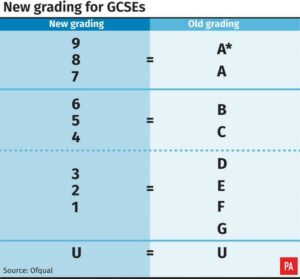
To test this new system, the new grades are slowly being eased in, with the letter grading system phased out from 2017-2019. In its first year in 2017, the new English and Maths curriculum were the only subjects to introduce the numerical grades. According to the Department of Education, this system is more challenging, especially maths. The amount of content has increased and there are concerns about the amount of pressure put on students.
In the GCSE curriculum, the amount of coursework has been reduced with a focus on exams. Another major change is the English Literature and Language syllabus.
The English Syllabus
→ English Literature: focuses on ‘classic texts,’ like Shakespeare, 19thcentury novels, poetry from 1789 onwards, and prose from the British Isles from 1914. This means there are no more classic texts like Of Mice and Men.
→ English Language: no more set texts that students can revise, but rather a “wide range of texts” from the 19th, 20thand 21stcentury. These will be unseen texts, both fiction and non-fiction. Students will analyse vocabulary, form and structure.
Additionally, all the exams are now sat in one summer, rather than across two years. This means that students do not have the option to resit exams in Year 11, that were sat in Year 10.
Worried about the new GCSE and SATs curriculum change? StudyBox offers tuition for this, teaching the new, current syllabus, in order to prepare students for their exams.
Book your free trial here. Alternatively, call StudyBox on 02086428884.
Top 10 Tips to Prevent Summer Learning Loss

The summer holidays are a well deserved break after a year of hard work. Key exams like SATs, the Eleven Plus and GCSEs are challenging and take months of preparation, so the 6-week break is certainly rewarding. Read on for StudyBox’s Top 10 Tips to prevent the Summer Learning Loss.
During this long break, it is easy to forget the work learnt throughout the past academic year. This means it can be easy to fall behind when starting primary and secondary school again in September.
Sometimes secondary schools set work for new year 7 students in order to prepare them for their new chapter. But often, primary schools are unable to assign tasks due to teachers and classrooms changing when moving up a year.
Keeping younger children engaged in learning is especially important to promote growth. They are not yet at the age where they can participate in activities during the summer holidays like work experience or volunteering.
This is why revisiting learning tasks is vital for promoting growth and keeping up to date during the summer break. Summer tuition at StudyBox is open throughout the summer holidays, providing maths and English activities to keep children’s brains engaged and prevent the summer learning loss. We also offer an exciting Kids Coding Course, for those interested in technology, or want to try something new! We believe tuition is important to keep building upon what was learnt in the previous school year, as well as learning new material. Follow our top tips to prevent the summer learning loss.
Top 10 Tips to Prevent the Summer Learning Loss:
1. Tuition
Try our English, maths and coding sessions during the summer with StudyBox.
2. Reading
Find a gripping book and read in the sun!
3. Creative Writing
Creative writing is fun and develops literacy skills. Design some fun storytelling tasks with your child.
4. Practice Papers
Put aside some time for completing mock exam papers. You can set the papers in exam conditions or go through the papers with your child.
5. Arts & Crafts
Encourage children to draw and make art this summer. You can even go on daytrips to art galleries, many of them are free!
6. Cooking & Baking
Get hands-on with the kids and bake muffins or involve them with cooking the dinner, cooking is a skill for life.
7. Educative Games
Brain games are fun and rewarding. Print out Sudoku puzzles or play a game of scrabble together.
8. Learning Apps
There are hundreds of educational apps for children, available on smart phones, tablets and computers. If you don’t have access to these, why not take a trip to your local library and use the computer for educational online games. While you’re there, borrow a book, too!
9. Learn a Language
Take the 6 weeks off as an opportunity to learn a new language, or improve on a language that your child is learning. There are many ways to do this: downloading apps (like Duolingo), using the internet for videos or interactive websites, or purchase children’s reading books in the desired language.
10. Fun activities
Despite the importance of keeping the brain active during the long break, don’t forget to have fun! Keep active and go on a bike ride, go swimming and go on day trips, fly a kite – the activities are endless!
Sign up for summer tuition packages with StudyBox now!
Available from Monday 22nd July – Saturday 31st August 2019.
Book your free trial here.
Year 5: Summer Tuition Sessions for the Eleven Plus Exam
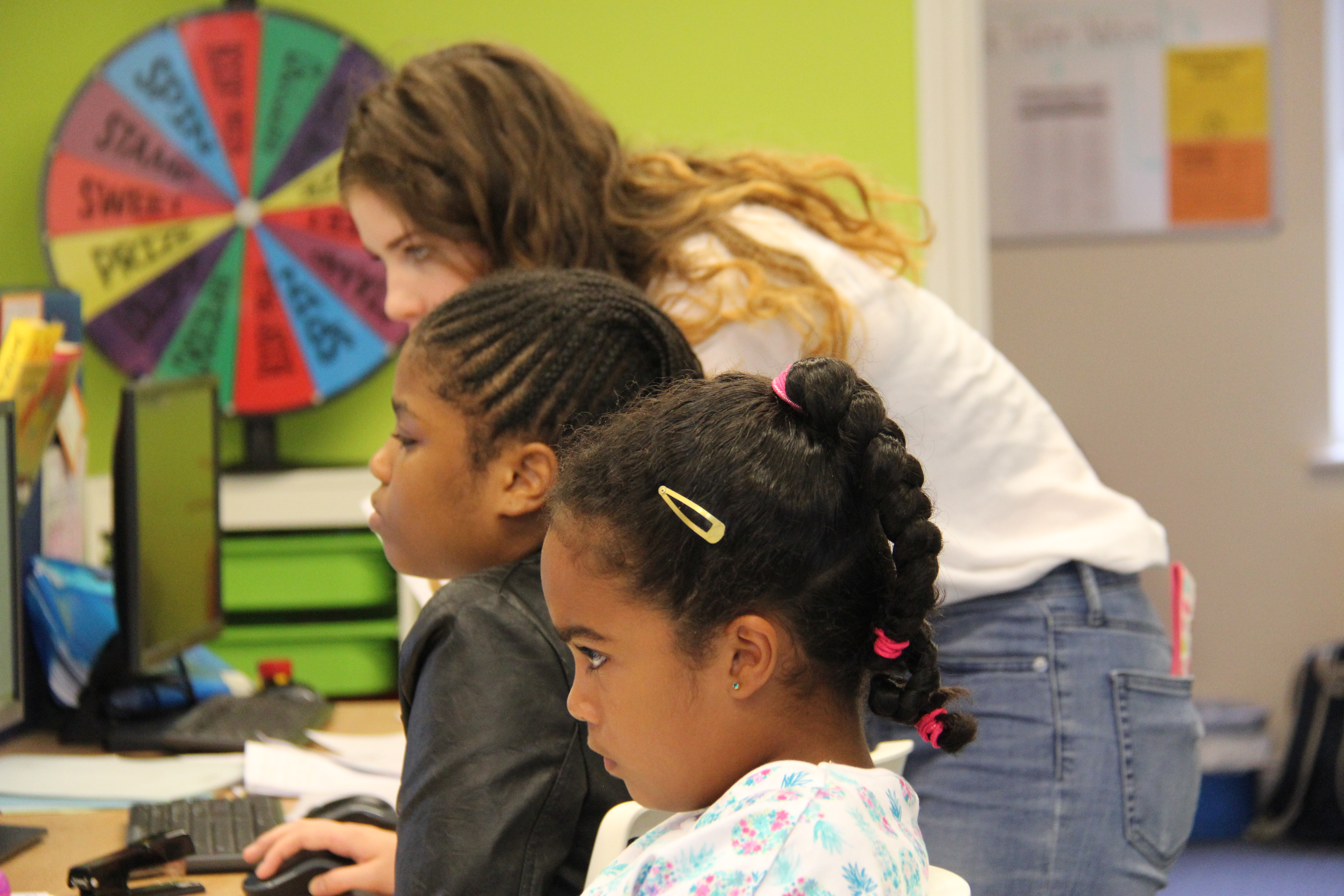
With just 63 days to go until the Eleven Plus exam, it is important to start preparation early in order for your child to achieve the best results.
At StudyBox, we are aware that preparing for the Eleven Plus can be a stressful time for students and their families.
That’s why StudyBox offers a Year 5 Eleven Plus mock package during the summer to prepare your child for their exam.
What is the Eleven Plus exam?
The Eleven Plus is taken by students to gain admission to a grammar school or secondary school that uses academic selection. Most students are aged 10 when they take the Eleven Plus. The exam is taken in the September of Year 6.
How can StudyBox help with Eleven Plus tuition?
This year the Eleven Plus exam takes place on Tuesday 17thSeptember 2019.
StudyBox works with Year 4 and 5 students in order to help them to secure a spot and their secondary school of choice.
The Year 5 mock package is a 3 hour session, available from Monday 22nd July until Saturday 31st August 2019.
The course:
● 1st hour: Completing a maths or English mock test.
● 2nd hour: Marking the paper with pupils, going over incorrect answers.
● 3rd hour: Revising and teaching new topics.
Our Eleven Plus course is based on the exams used by the schools in Sutton, Wallington, Croydon and Kingston.
Grammar schools that we prepare your child for:
Wallington County Grammar (boys)
Wallington High School for Girls
Sutton Grammar School (boys)
Nonsuch High School for Girls
Wilson’s School (boys)
We focus on the following areas:
Comprehension techniques:
- Reading for meaning
- Interpreting questions
- Long and short written answers
- Answers using short quotations
Grammar and Writing:
- Creative writing
- Common spelling errors & punctuation
- Common grammatical errors
- Vocabulary development
Maths:
- Problem solving
- Multi-step questions
- Handling data
- Multiple choice skills
Book your Eleven Plus package here.
Contact us for a free trial
You can request a free StudyBox trial and assessment any day after school or Saturday mornings. For a no-obligation chat, contact us at our Sutton Tuition Centre on 0208 642 8884, or at our Wallington Tuition Centre on 0208 669 4343.
Alternatively, book a free trial here.
World Youth Skills Day

Today is World Youth Skills Day, bringing to light the importance of youth development in their education and abilities.
Starting to think about your child’s future?
The job market is extremely competitive in today’s generation. Young people are three times more likely to be unemployed than in previous years, despite possessing developed skills.
School-to-work transitions are becoming more and more challenging for the youth of today, so what is the solution?
That’s how StudyBox can help.
StudyBox offers one-on-one tuition in maths, English and science. Not to mention, a kids coding course. Additional tuition outside of school will boost your child’s confidence, as well as equipping them with the learning skills to be the top of their class.
“Education and training are key determinants for the job market.”
Globally, unemployment and lower quality of jobs is currently one of the most crucial issues. According to the United Nations, “education and training are key determinants” for the job market. Through private tuition, your child can get a head start in their education.
If you’re looking to send your child to their secondary school of choice, StudyBox also offers Eleven Plus courses in preparation for the Eleven Plus exams. A good education is vital for a successful future.
According to the Department for Education and Employment, today’s society are seeing lower levels of achievement in basic English and maths skills. Moreover, existing systems are failing to address young people’s learning needs. At StudyBox, our tutors provide tailored lessons to each child, focusing on the areas they find the most challenging. This will help to pave their education from primary school to secondary school, and their way from higher education into the job market.
“Today’s youth are the leaders of tomorrow.”
It is key to encourage children’s potential through their own skilled abilities. This will “promote lifelong learning opportunities for all” (United Nations).
Consequently, it is important to start thinking about your child’s future early on. According to United Nations, developing technical and vocational education early on prepares children for future workplace skills. StudyBox’s Kids Coding course not only helps with maths and writing skills, but is also a great addition to a CV and for enhancing job opportunities.
Sign up for tuition with StudyBox on World Youth Skills Day to give your child a head start with their future!
After all, today’s youth are the leaders of tomorrow.
Book your free trial here.
Introducing a Coding Course For Kids During May Half Term
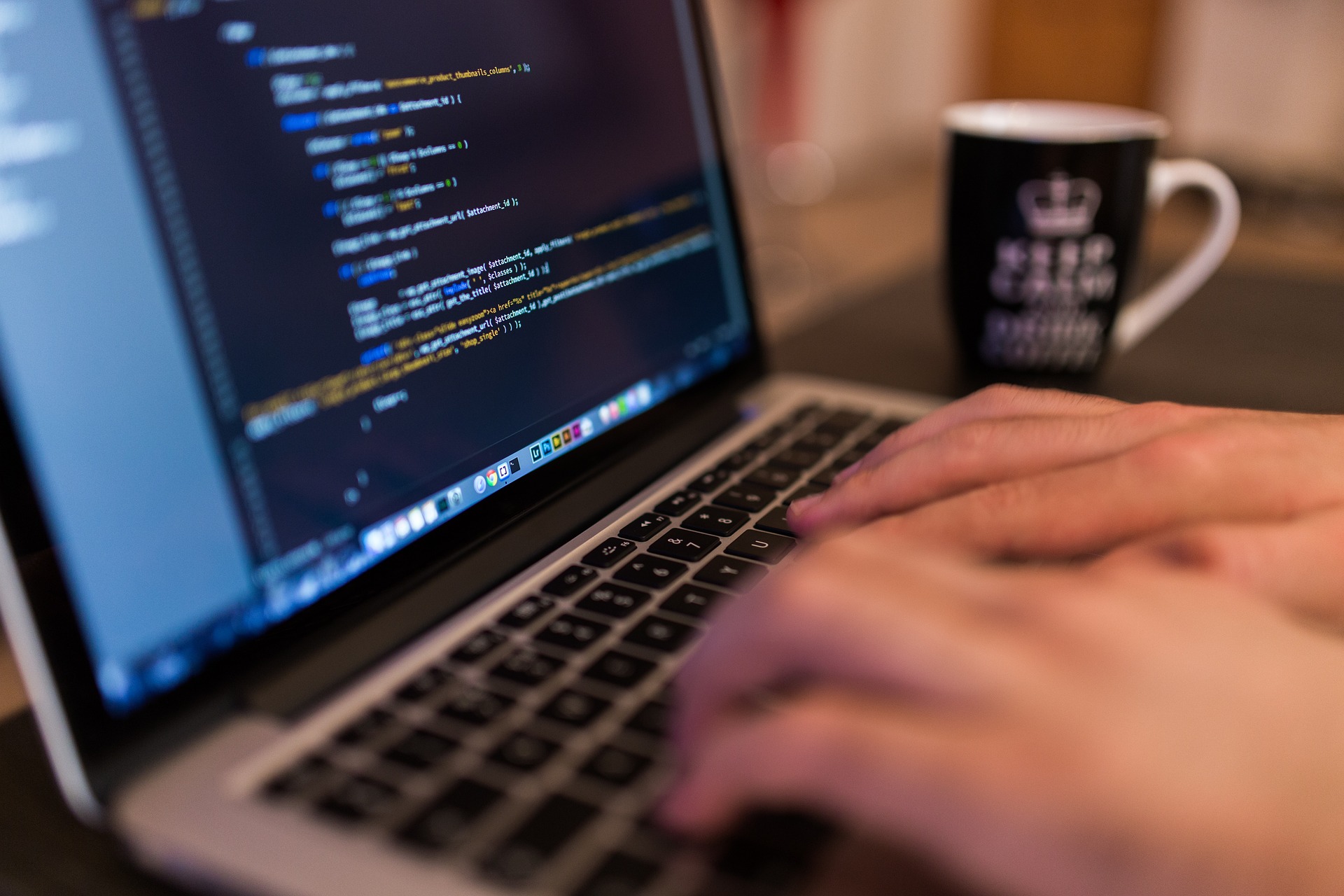
This May half term, StudyBox will be introducing a coding course for students. Further courses will then be made available during the summer break.
What is coding?
Coding is the skill of the future. It is the foundation on which websites, apps and video games are created and maintained. Put simply, through the language of coding we communicate with computers.
Why should children learn to code?
Learning to code might be perceived by students as a welcome diversion from academic study, but it is a great way to develop new skills. Not only is coding fun and “cool”, but there are also many benefits associated with learning to code:
Coding helps students to develop new, transferable skills
- Problem Solving
Coding teaches students to confront complex problems and break them down into smaller parts. This leads to logical, computational thinking.
- Creativity
Instead of just using technology, through coding students put together their own vision of an app, game or website
- Collaboration
By working together on projects, students naturally learn to collaborate and work effectively as a team, thereby developing robust work and life skills.
- Communication
Of computers, it is often said that you only get out what you put in, and this is very much the case with coding. Students must communicate their requirements concisely through the language of coding for their project to be successful.
- Critical Thinking
When coding, a methodical approach is essential. Students learn to map out and rigidly follow the stages of their work.
All these skills are transferrable across academic disciplines and extra-curricular activities.
Coding skills provide wider opportunities in the job market
According to Emsi, the student-to-employment economic specialists, Britain faces a shortage in Science, Technology, Engineering and Mathematics (STEM) skills. Coding is a skill that is very much associated with this area of learning.
Coding skills improve job prospects:
- When applying to colleges or universities for STEM subjects, having coding experience can give students an advantage over the competition
- Demonstrating coding skills will increase a student’s prospects of securing programming job roles. Computing jobs are growing at over twice the national average of other careers, but it is argued there are not enough skilled people to fill them
- Basic programming knowledge enhances the way students interact with the technologies they use at university and throughout their career.
StudyBox tuition will be introducing a coding course in May half term.
Why Choose StudyBox Coding Lab?
Introduction to coding concepts using a variety of tools and techniques that will enhance their knowledge of coding.
What they will learn:
-
Learn about control and sensors while programming a robot
-
Curriculum-based activities
-
Learn to input commands
-
Debug programmes
-
Create their own games
Transferrable Skills: Problem Solving, Creativity, Collaboration, Communication, Critical Thinking.
May Half-Term
10 am to 2 pm
Monday 27th – Thursday 30th
The course will take place at StudyBox@Kidspace Croydon
Course Overview:
5-7 year-olds
1-hour lessons
-
A fun introduction to coding.
-
Screen-free and hands-on activities to teach coding.
-
Learn to program a robot to perform a sequence of steps.
-
Children can set up fun cause and effect sequences.
8-9 year-olds
1-hour lessons
-
Progress from off-screen activities to on-screen coding.
-
Team-based projects.
-
Create a vehicle and programme it to move and complete tasks.
-
Introduction to Python coding language.
10-12 year-olds
1 or 2 hour Lessons
-
Learn how coding languages work.
-
Create your own code.
-
Linking software with hardware.
-
Learn how to continue working on their project after the lesson has finished.
Get in touch
To find out more about StudyBox coding courses and how your child can learn the skill of the future, call us on 020 3189 1442 or visit our website.
An additional tuition centre for StudyBox at Kidspace, Croydon
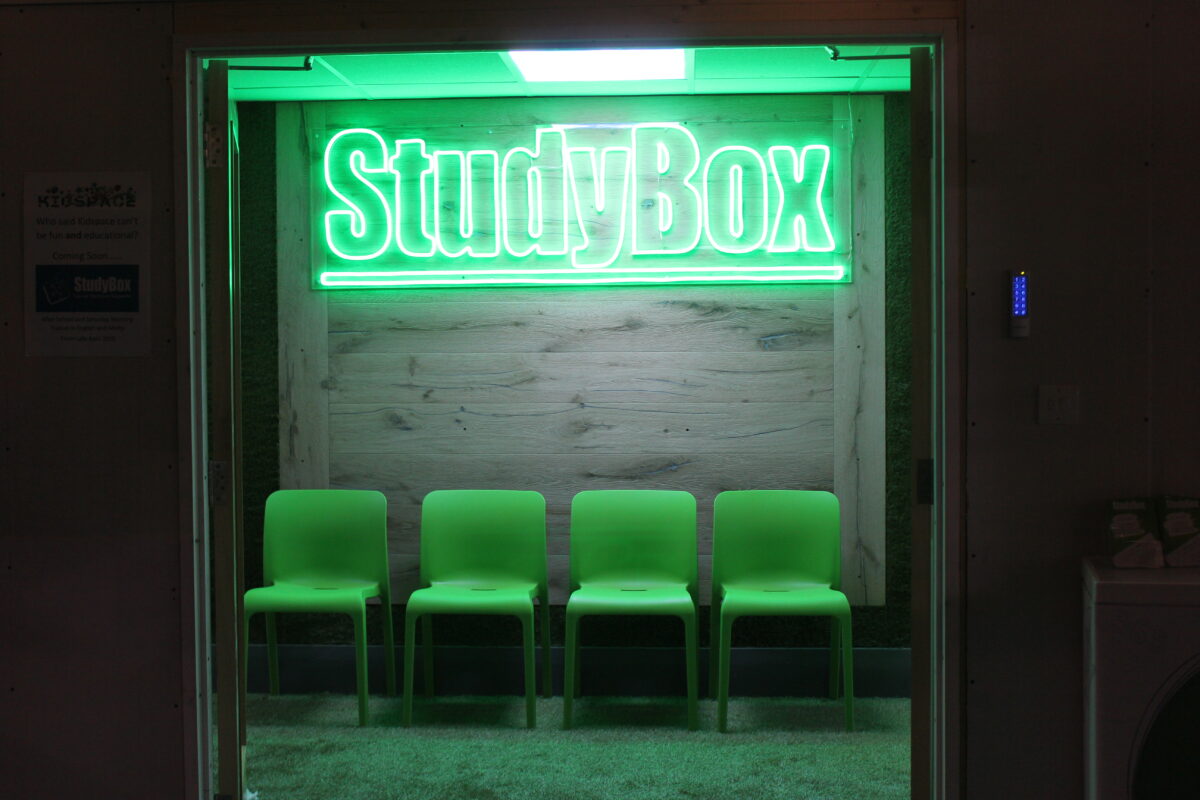
In April, StudyBox opened its latest tuition centre. In addition to our centres in Wallington, Sutton and Epsom we now have our third centre in Kidspace at The Colonnades, Croydon.
This unique setting allows us to provide students with the opportunity to combine exercise and education. As experts in English, Maths and Science tuition, at StudyBox we understand the benefits of exercise on a child’s capacity to learn.
Kidspace provides the perfect setting for learning
The creation of Kidspace was a response to a lack of recreation facilities for children in the local area. The owners maintain that play should be challenging and fun, a mantra that sits perfectly with the StudyBox approach to education. We like to challenge our students while doing everything possible to create a relaxed and inspirational environment.
So, the perfect partnership between recreation and education was born. The StudyBox centre at Kidspace is open weekdays from 4-6pm and on Saturday mornings. There is free car parking, and for those using public transport, the centre is on a busy bus route.
The added bonus for students attending our Croydon centre is that they also get one hour of free play time before or after their class. A report published in PubMed Central (PMC) found that the ability to focus attention is improved among children who participate in physical activities. Having a tuition centre inside an indoor adventure playground must, then, be a win-win!
StudyBox tutors complement the work being done in schools
StudyBox first opened in March 2015. We take great care to hire a wide range of enthusiastic tutors who can adapt to the different learning styles and abilities of students. Close relationships with local schools are also key to serving local communities effectively.
We follow the national curriculum, guiding students through 11+ exams and GCSEs, and helping them transition from year to year throughout their education. StudyBox is proud of its achievements so far.
Get in touch
If you would like any more information about the new centre at Kidspace, call us on 0203 189 1442 (ext 4) or email us at [email protected]. Book your free trial now.
Dotting the i’s and crossing the t’s for SPaGs and SATs preparation

Although literacy has always been a key element of the SATs format for Key Stage 1 and Key Stage 2 students in primary schools, the Spelling Punctuation and Grammar (SPaG) Test was introduced in 2013 to bring a clearer focus to the literacy element of SATs.
What is the SPaG Test?
Informally known as the SPaG test, the English spelling, punctuation and grammar test was originally introduced to replace the previous English writing test in the KS2 SATs programme for Year 6 pupils.
Since the introduction in 2016 of the new format SATs, however, the increased focus on spelling, grammar and punctuation have resulted in the inclusion of a SPaG test in KS1 SATs.
What is the format of the SPaG Tests?
KS1 Paper 1: a spelling test of 20 words.
KS1 Paper 2: a grammar and punctuation test of about 20 questions, including the following: use of suffixes, identification of parts of speech, tenses, basic punctuation including commas and full stops, and the use of apostrophes.
KS2 Paper: a 45-minute test focussing on grammar and punctuation. It covers areas such as suffixes, conjunctions, punctuation types, tenses and use of Standard English.
KS2 paper: a spelling test of 20 words.
What are SATs used for?
SATS, including the SPaG Tests, evaluate a child’s educational progress at the end of KS1 and KS2.
KS1 SATs are marked internally by the school and used to monitor students’ progress. They evaluate potential and decide on the best maths and English group for each student for their KS2 education.
KS2 SATs are marked externally and used by Secondary Schools to group children into streams based on their academic ability. The sets or streams are usually implemented immediately as they join the school.
Why are SATs important?
Primary education is the catalyst for realising a student’s potential. If a student prepares well and gives their best performance in KS1 tests, thereby showing their true potential, they will work to the correct level throughout KS2, giving them the best chance to succeed when they are tested again in Year 6.
SATs results in Year 6 will affect how a student starts their secondary education, as this is the information on which secondary schools evaluate a student’s ability and potential, and stream them accordingly. This can have a significant impact on a student’s confidence and perception of their own ability and progress. Setting off on the right foot to meet optimum potential can reap benefits throughout a student’s secondary education.
Why is it important to prepare for SATs?
At ages 7 and 11, tests can be daunting, but the importance of the SATs can make them particularly overwhelming. You only need to look at the breakdown of what is included in the SATs papers to understand why!
By preparing early and getting used to SATs questions, students become more confident which will lead to stronger performance.
Get in touch
StudyBox is a tuition centre based in Wallington and Sutton, providing tuition in English, mathematics and science for SATS, 11+ and GCSE. To find out how we can help students with SATs preparation, visit https://studybox.london/sats-tuition/.
Check out our previous blog!
Exercise and education: the perfect formula for success
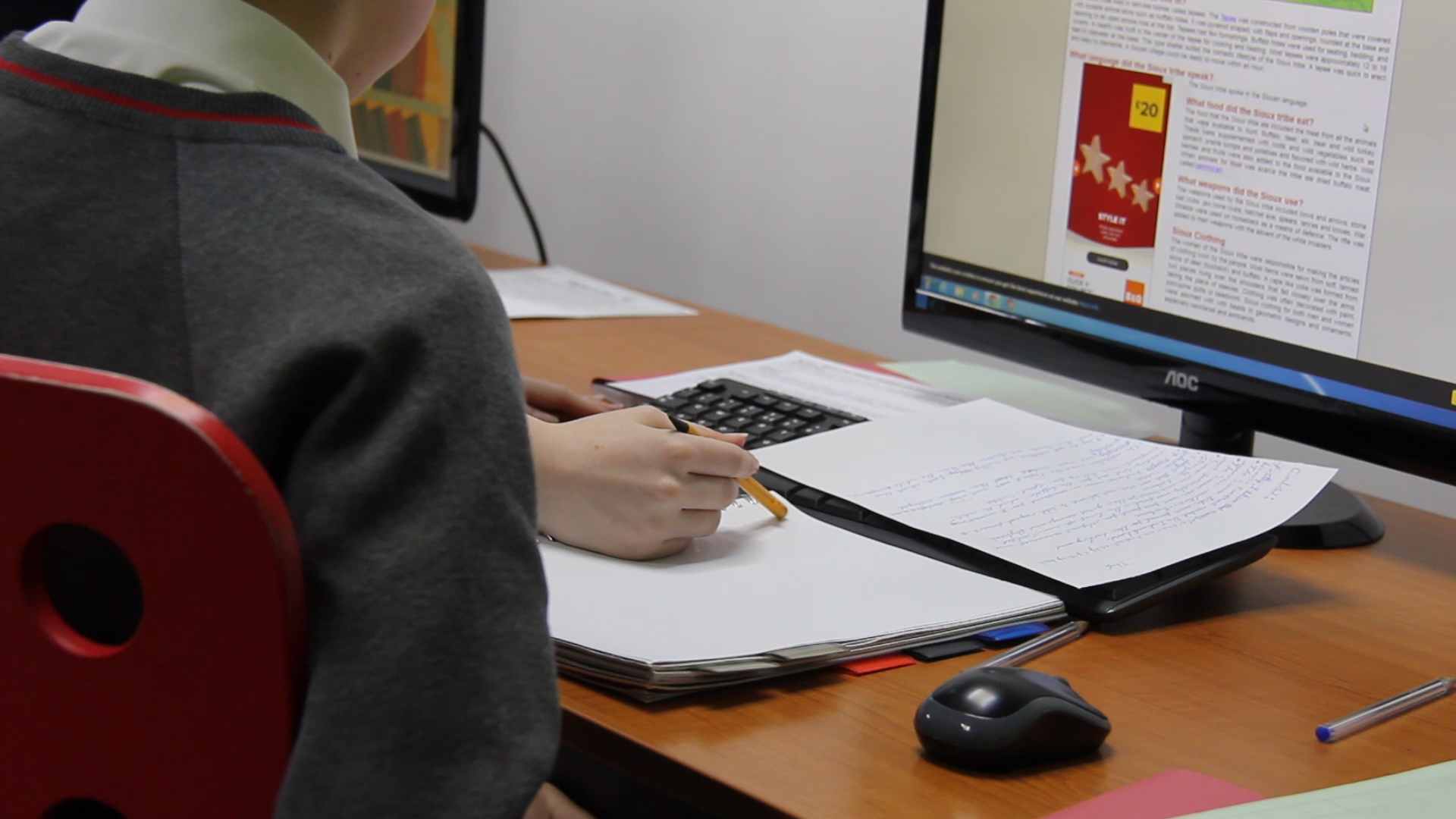
Evidence for the positive effect of exercise on learning is gathering pace. The benefits of exercise on attention control, which is crucial for a child’s studies, are proving to be particularly significant.
This April a new StudyBox Tuition centre open in Kidspace Croydon. Students will be rewarded with an hour’s free playtime in the adventure centre before or after each tuition session. It is expected that this combination of recreation and study will lead to a positive response to learning, and ultimately academic success.
Evidence For How Exercise Helps With Study
The Centre for Educational Neuroscience claims that performance in maths and reading is improved with aerobic fitness. Perceptual skills, intelligence, verbal tests, maths tests, memory and academic readiness in ages 4-18 years are positively affected by exercise.
Research conducted by Drollette et al in 2014 found that children who usually performed poorly on attention tasks improved when tested shortly after “moderate acute exercise” such as 20 minutes of walking on a treadmill.
Another study, performed by Scientific American, shared that in their two year study across 12 schools they found that the students who exercised achieved better results with the conclusion that exercise contributes to increased academic performance.
How does exercise help with academic study?
Here’s the science bit! A study, published in Frontiers in Human Neuroscience, reports that children who exercise have more white matter in their brains than those who don’t.
The areas of the brain where more white matter was observed are important for attention and memory. The results from a range of tests show that physical activity may be an important part of keeping children’s brains active and open to learning.
Regular exercise affects students by:
- Boosting memory
- Improving concentration
- Improving mental health
- Enhancing creativity
Students should exercise physically and mentally
Of course, it’s not just physical exercise that matters for young students. They must also exercise mentally through revision and regular study outside of the classroom. Private tuition boosts confidence by providing students with the opportunity to ask what they may think are “silly” questions and enables them to focus on problem areas of study.
StudyBox believes that the new tuition centre in Kidspace will provide the ideal opportunity for combining physical and mental exercise. Studying isn’t usually seen as a direct route to fun, but the new tuition centre will change that perception.
The new StudyBox tuition centre at Kidspace
The new purpose built modern classroom will be open weekdays from 4-6pm, and on Saturday mornings. There is free car parking and the centre is on a busy bus route.
StudyBox provides tuition in Maths, English, SATs & the 11 Plus for students of all abilities from Reception to Year 6.
Get in touch
If you would like any more information about this new centre, call us on 0203 189 1442 (ext 4) or email us at [email protected]. Free trials are available. studybox.london
